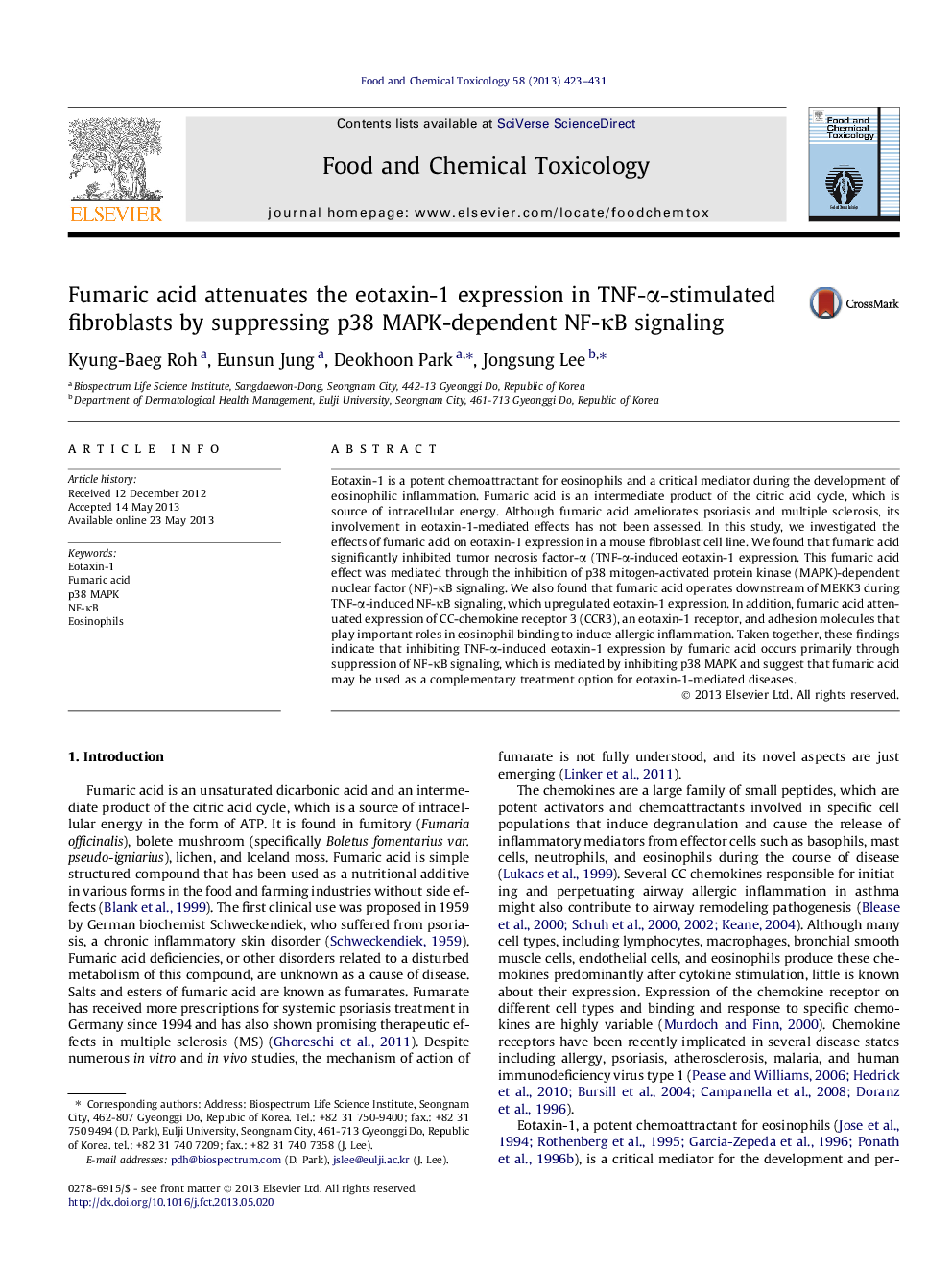| Article ID | Journal | Published Year | Pages | File Type |
|---|---|---|---|---|
| 5851798 | Food and Chemical Toxicology | 2013 | 9 Pages |
â¢Eotaxin-1 is a potent chemoattractant for eosinophils in eosinophilic inflammation.â¢Fumaric acid inhibited TNF-α-induced eotaxin-1 expression in NIH/3T3.â¢Eotaxin-1 inhibition was mediated by p38 MAPK dependent NF-κB signaling.
Eotaxin-1 is a potent chemoattractant for eosinophils and a critical mediator during the development of eosinophilic inflammation. Fumaric acid is an intermediate product of the citric acid cycle, which is source of intracellular energy. Although fumaric acid ameliorates psoriasis and multiple sclerosis, its involvement in eotaxin-1-mediated effects has not been assessed. In this study, we investigated the effects of fumaric acid on eotaxin-1 expression in a mouse fibroblast cell line. We found that fumaric acid significantly inhibited tumor necrosis factor-α (TNF-α-induced eotaxin-1 expression. This fumaric acid effect was mediated through the inhibition of p38 mitogen-activated protein kinase (MAPK)-dependent nuclear factor (NF)-κB signaling. We also found that fumaric acid operates downstream of MEKK3 during TNF-α-induced NF-κB signaling, which upregulated eotaxin-1 expression. In addition, fumaric acid attenuated expression of CC-chemokine receptor 3 (CCR3), an eotaxin-1 receptor, and adhesion molecules that play important roles in eosinophil binding to induce allergic inflammation. Taken together, these findings indicate that inhibiting TNF-α-induced eotaxin-1 expression by fumaric acid occurs primarily through suppression of NF-κB signaling, which is mediated by inhibiting p38 MAPK and suggest that fumaric acid may be used as a complementary treatment option for eotaxin-1-mediated diseases.
Graphical abstractDownload full-size image
